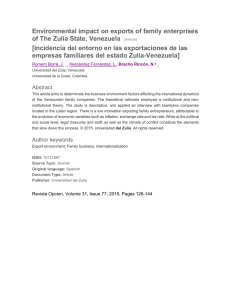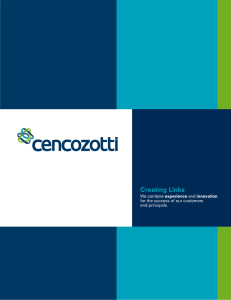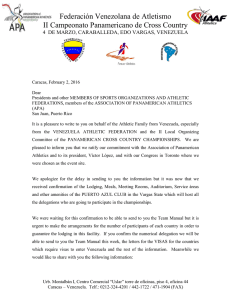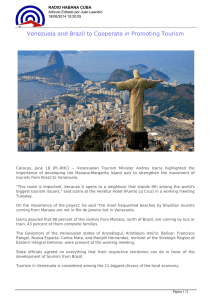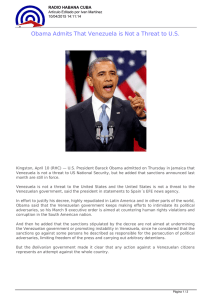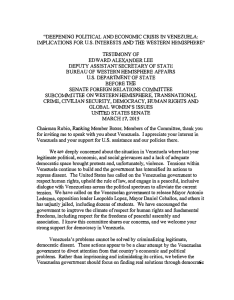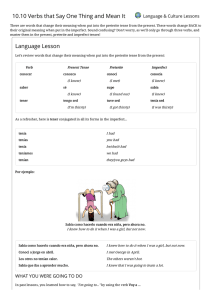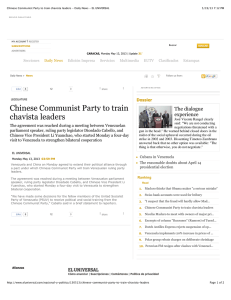Risk Factors for Dementia in an Urban Population of Venezuela
Anuncio
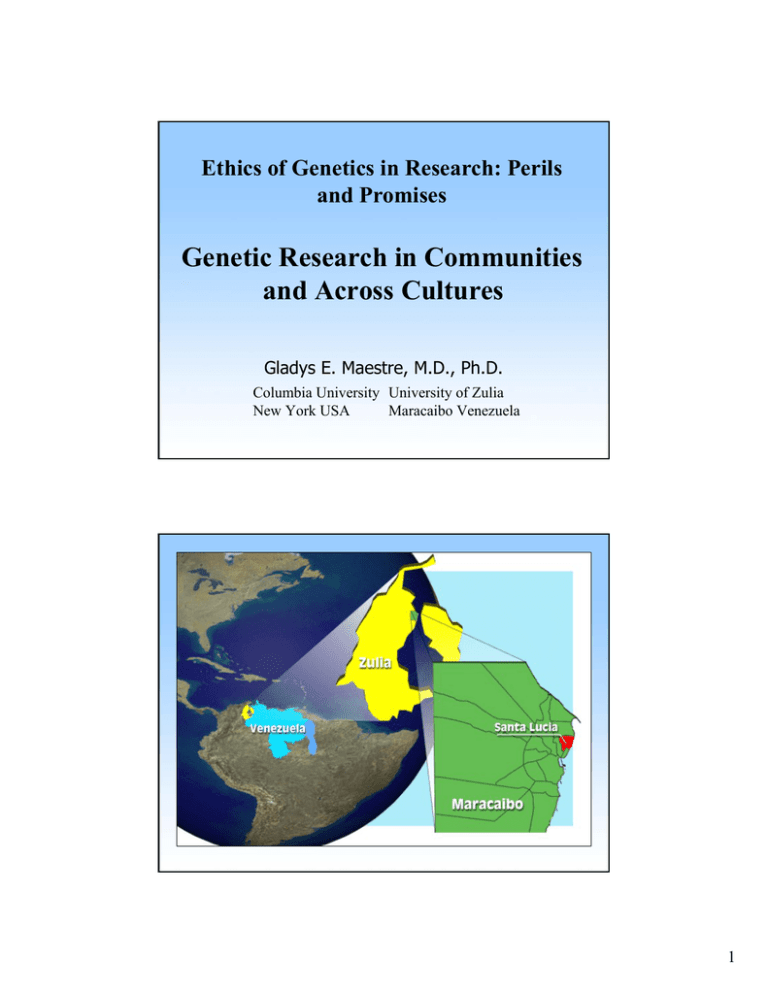
Ethics of Genetics in Research: Perils and Promises Risk Factors in Genetic ResearchforinDementia Communities an Urban Population and Across Cultures of Venezuela GladysE.E.Maestre, Maestre,M.D., M.D.,Ph.D. Ph.D. Gladys University of Zulia Columbia University University of Zulia Venezuela New YorkMaracaibo USA Maracaibo Venezuela Risk Factors for Dementia in an Urban Population of Venezuela Gladys E. Maestre, M.D., Ph.D. University of Zulia Maracaibo Venezuela 1 Risk Factors for Dementia in an Urban Population of Venezuela Gladys E. Maestre, M.D., Ph.D. University of Zulia Maracaibo Venezuela Risk Factors for Dementia in an Urban Population of Venezuela Gladys E. Maestre, M.D., Ph.D. University of Zulia Maracaibo Venezuela 2 Risk Factors for Dementia in an Urban Population of Venezuela Gladys E. Maestre, M.D., Ph.D. University of Zulia Maracaibo Venezuela Santa Rosa de Agua 3 Santa Lucia Risk Factors for Dementia in an Urban Population of Venezuela Gladys E. Maestre, M.D., Ph.D. University of Zulia Maracaibo Venezuela Santa Rosa Santa Lucia 4 Maracaibo Aging Study • Survey-based registry – Door to Door People over 55 years of age • Informed consent – Community Consent – Family Consent –head of the family – Individual Consent Objectives • To define the aging profile of the local Risk Factors for Dementia population and its determinants in an Urban Population of risk • To assess the prevalence, incidence and factors for dementia Venezuela • To examine the association between Gladys E.and Maestre, M.D., Ph.D. cardiovascular cognitive function University of Zulia Maracaibo Venezuela 5 Assessment Protocols • Survey • Social worker atfor the home Risk Factors Dementia • Neuropsychological tests an Urban Population of • Neuropsychiatric assessments Venezuela • Cardiovascular tests • MRI Gladys E. Maestre, M.D., Ph.D. • Clinical Chemistry University of Zulia • DNA Maracaibo Venezuela in Risk Factors for Dementia in an Urban Population of Venezuela Gladys E. Maestre, M.D., Ph.D. University of Zulia Maracaibo Venezuela 6 Why would you want to participate? • Maybe I can make some money • Maybe they will help me solve a health problem • Maybe they can help us to get a job, a house, anything that we need • Maybe they will find the cure for a disease that runs in my family • Maybe is good fo the neighborhood and the press will come Community Meeting on Genome Research in Santa Rosa de Agua 7 What can/should we give to the community in return for their participation? Money? Used clothes? Toys for the kids? A party? Are we talking a bout charity or is it our responsibility give back something to the community? What can/should we give to the community in return for their participation? They should benefit of the knowledge and expertise developed thanks to the study in a meaningful and sustainable way • Specialized services available • Should learn along the way • Prevention of diseases 8 9Capacity Building 9Public Engagement 9Sustainable Health Services Goal of the Program To strengthen the capacity of Venezuelan scientists based at the University of Zulia to study the genetics of common heritable disorders relevant to Latin America and the Caribbean John E. Fogarty International Center 9 Main Strategies • Training of a critical mass of scientists and engineers in the design and conduct of modern genetic/genomic research • Facilitating the development of a research and training infrastructure at the University of Zulia • Establishing collaborative networks between Columbia/Chicago Universities and University of Zulia researchers 24 Preparatory Courses in 3 years •Public Policy and Scientific Research •English Writing •Introduction to Biostatistics •Statistical Genetics • Genome Variation and Human Common Diseases • Laboratory Skills • Neurobiology •Basic Aspects of Brain Diseases •Neurodegeneration •Brain-Environment Interactions •Genetic, Genomic and Public Health 10 Preparatory Courses 22 302 Dr. Jose Ortiz and Students of the Laboratory Skills Course 11 How to Initiate and Sustain Collaborations for Research and Training? • Videoconferencing • Exchange of Students • Developing collaborative agreements – Visitis from scientists to Maracaibo • Writing grants and applying for funding PUBLIC ENGAGEMENT 12 Thank You... [email protected] www.neurociencias.org.ve 13
